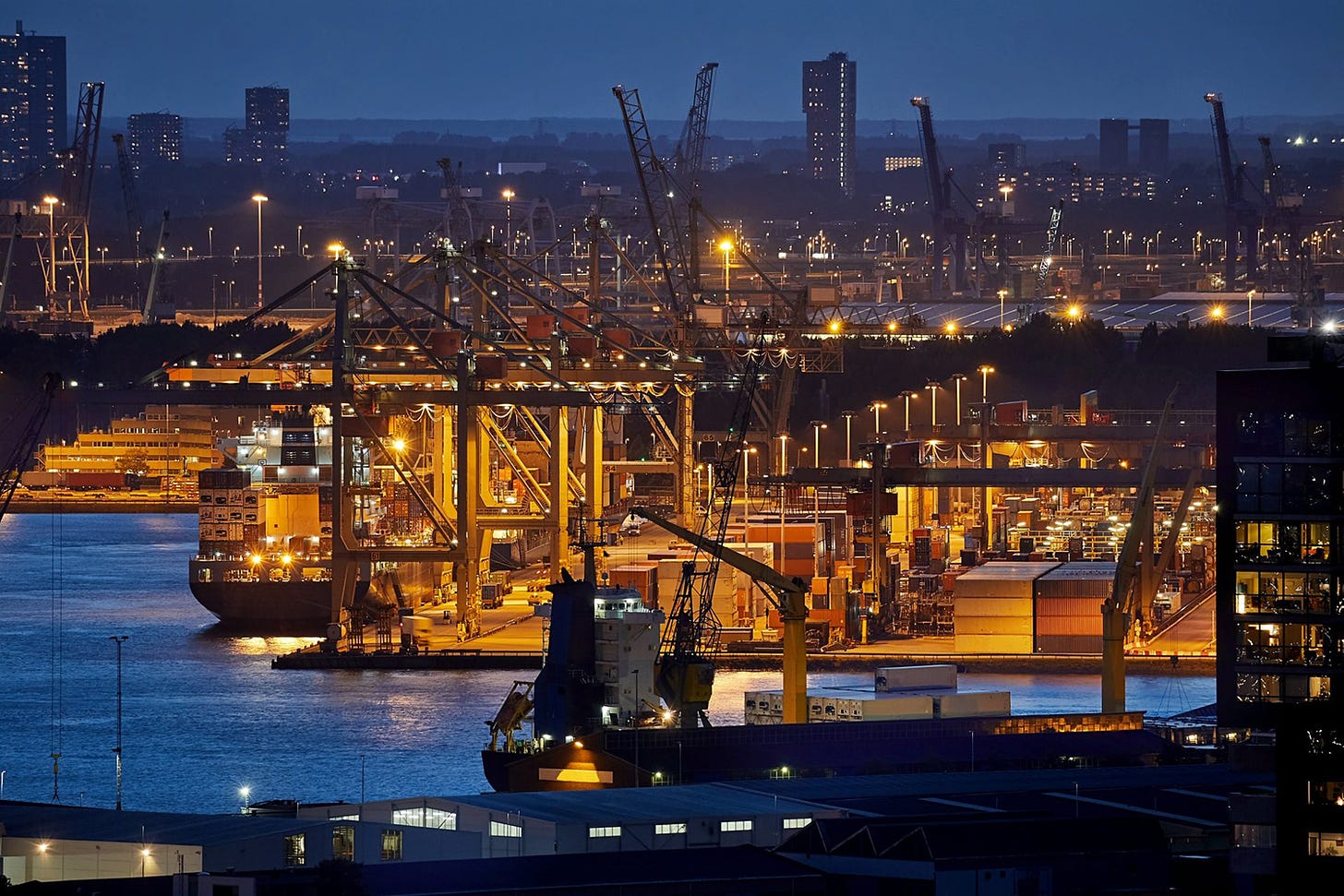Dutch Police Spend Too Much Time on Drugs
Three in four detectives are investigating 1.6 percent of all crimes.
Dutch police chief Andy Kraag revealed in an interview this month that three out of four of his detectives are working on drug cases.
Even if that’s a mild exaggeration (Kraag meant to underscore the scope of the drug problem), police for sure devote more resources to drugs than any other crime. 20 to 30 percent of their budget, between €1.1 and €1.6 billion, goes to fighting the drug war every year.
Drugs are only 1.6 percent of all reported crimes in the Netherlands. I argue in Sargasso, a Dutch news and opinion blog, that police priorities aren’t just wrong; they’re dangerous. Worse criminals go unpunished.
Not all crimes are the same
Police will argue not all crimes are reported and not all crimes are the same. Vandalizing a busstop and smuggling 500 kilograms of cocaine are both counted as “a” crime. That doesn’t mean they deserve equal police time.
So I compare drugs with another underreported but high-impact crime: sexual assault. Reportedly 1.1 percent of all crimes, experts believe the real figure is at least ten times that. When asked which crimes police should prioritize, most Dutch people would rank sexual violence in second place after murder.
Last year, police found a suspect in 51 percent of sexual-assault cases, down from 66 percent in 2020. Of those, 34 percent were brought to trial within six months. Both police and prosecutors say their goal is 80 percent. They’ve never met it. They don’t have the resources to investigate and prosecute all cases. When a Dutch news program requested the figures earlier this year, they learned that 808 investigations into sexual violence were on hold due to lack of funding or manpower or both.
There is no such backlog in drug cases. Between 2015 and 2019, the number of police investigations into organized drug crime alone — not counting small-time dealers and drug labs — nearly doubled from 341 to 613.
In 2019, parliament gave police an extra €15 million to investigate sexual assaults. It raised funding for the drug war by €150 million. It’s not just the police whose priorities are out of whack.
War on drugs
Including prevention programs, prosecutions and prisons, the war on drugs costs the Dutch taxpayer between €1.8 and €2.7 billion per year.
It’s not that the money goes to waste. Thousands of drug labs have been dismantled. The amount of cocaine intercepted in the port of Rotterdam has quadrupled in four years, from 20,000 to 80,000 kilos. One in ten cases police bring to prosecutors are drug-related. Half are taken to court. (Remember the figure for rapists was a third.) One in five prisoners were convicted of a drug crime.
Yet the price of cocaine hasn’t budged from €50 per gram in fifteen years. (Lower than in the United States.) It seems the more drugs customs and police intercept, the more drug cartels ship to Europe. Cocaine production in South America is believed to have tripled in the last ten years.
Half of under-35s in the Netherlands have tried ecstasy, the country’s most popular drug after cannabis, which is manufactured locally. Only 3 percent used ecstasy in the last year. The figures for amphetamines, cocaine and other drugs are even lower, and below the European average. Drug use in the Netherlands is low — and stable.
Some 130,000 Dutch people are addicted to drugs, half to cannabis, which is decriminalized. 600,000 are addicted to opioids and one million to either alcohol or tobacco. All of which are legal.
224 drug users died of an overdose or complication in 2018, the most recent figure available. 20,000 smokers die in the Netherlands every year. Alcoholism kills almost 2,000. But cops aren’t chasing brewers and bartenders.
Circular logic
For every action there is a reaction. When police devote more resources to fighting a crime, criminals will devote more resources to evading them — or resort to more brutal methods.
Sometimes that tradeoff is worth it. If we’re talking about child-pornography rings or human traffickers, I’m less worried about escalation than I am about saving the victims.
But most “victims” of drug crime are criminals, not users: teenagers from poor families, who are recruited to sell drugs, and who tend to end up either in prison or dead; dock workers, customs officials, security guards, even police officers, who are bribed or threatened to look the other way in the port of Rotterdam.
Police and government officials point to the destructive effect not of drugs, but of drug crime — on families, neighborhoods and businesses — to argue it would be “naive” to legalize drugs. That is circular logic: criminalizing drugs has led to suffering and violence, which is why drugs must be criminal.
At least half the rapists in the Netherlands go free, because our detectives are investigating an unending stream of drug criminals. We spend billions of euros to fight drug crime each year. Yet every year, the crime gets worse and drug use remains stable. We are doing more of the same and expecting a different outcome. What is that if not naive?




